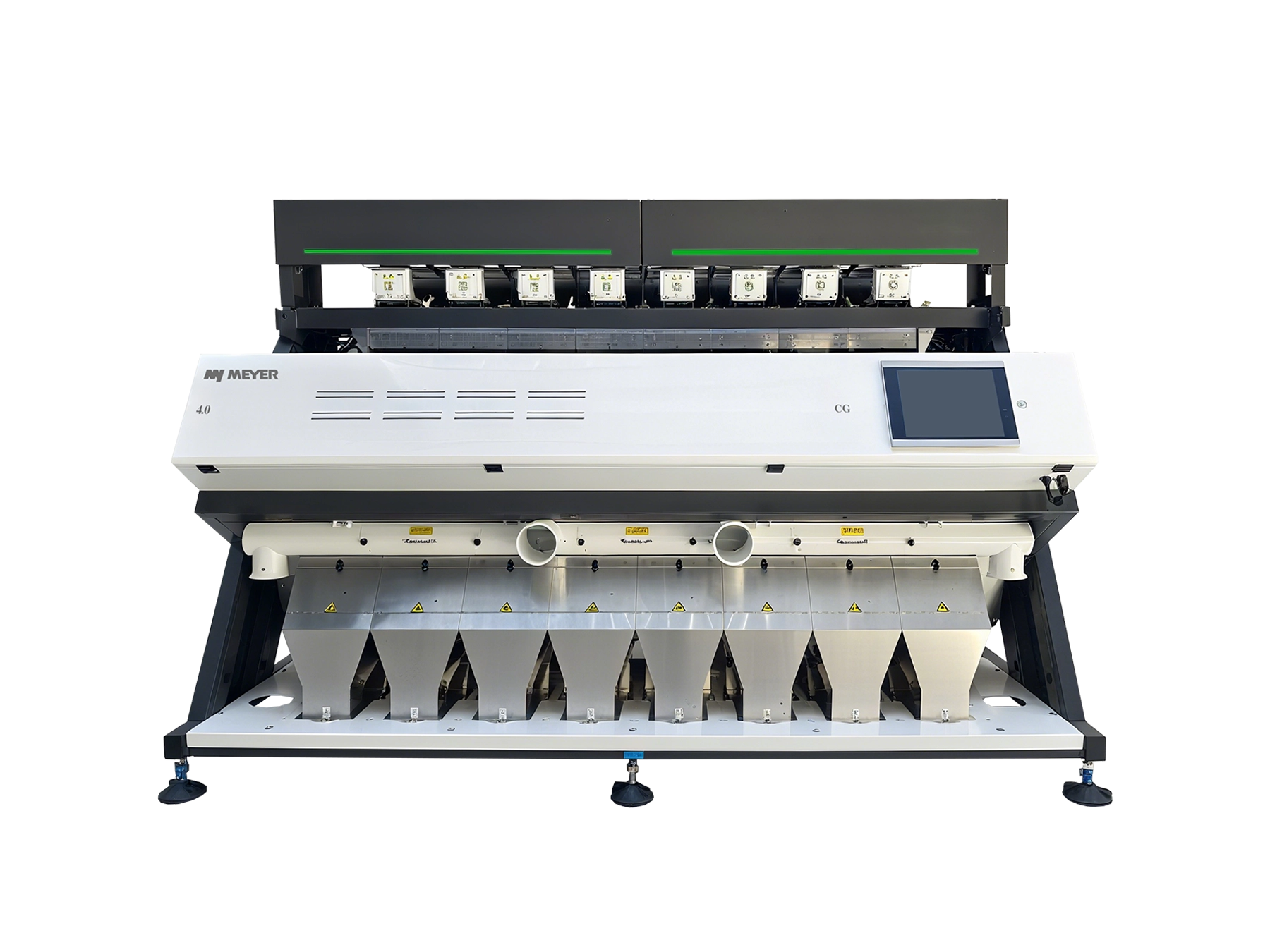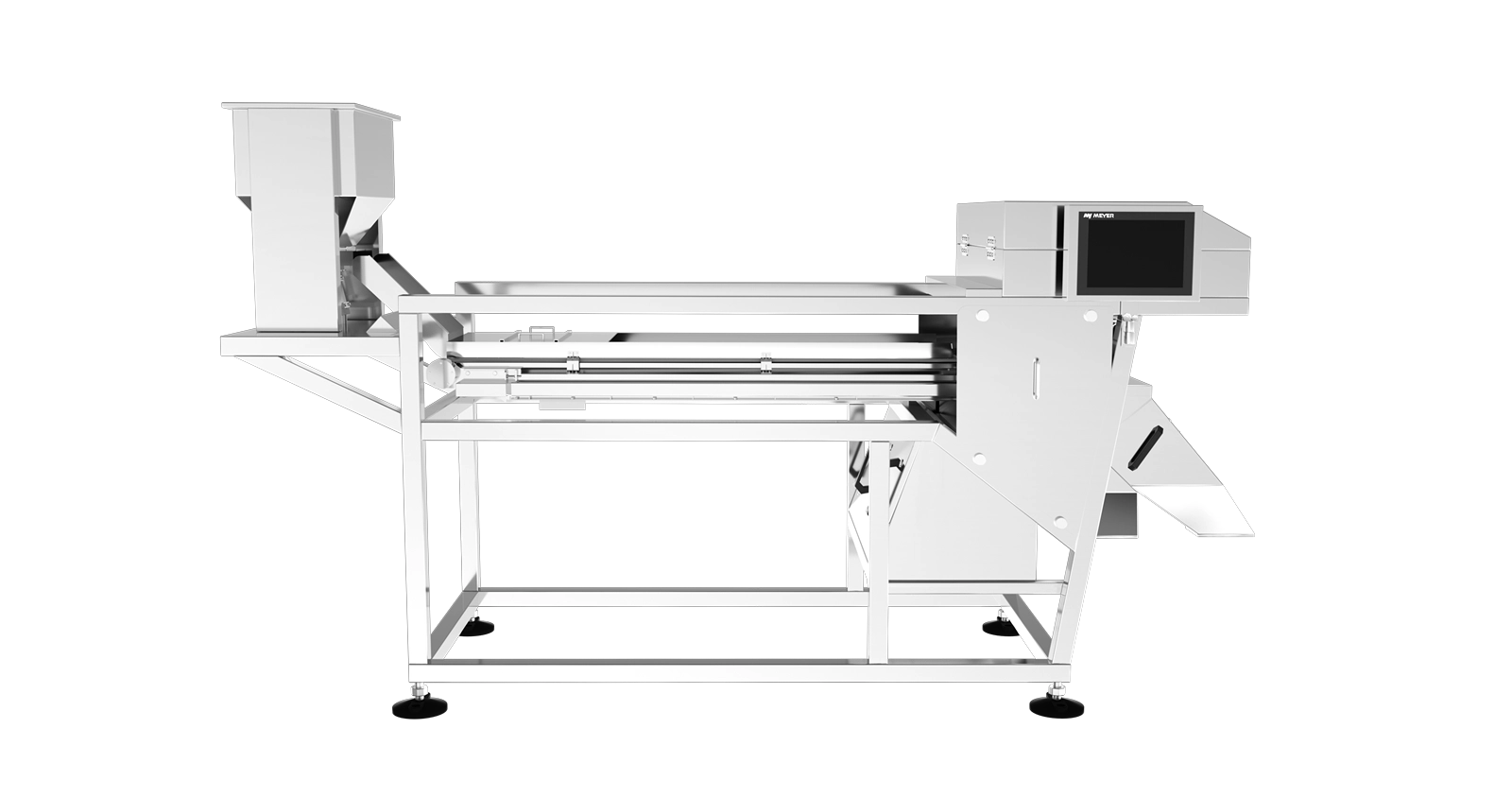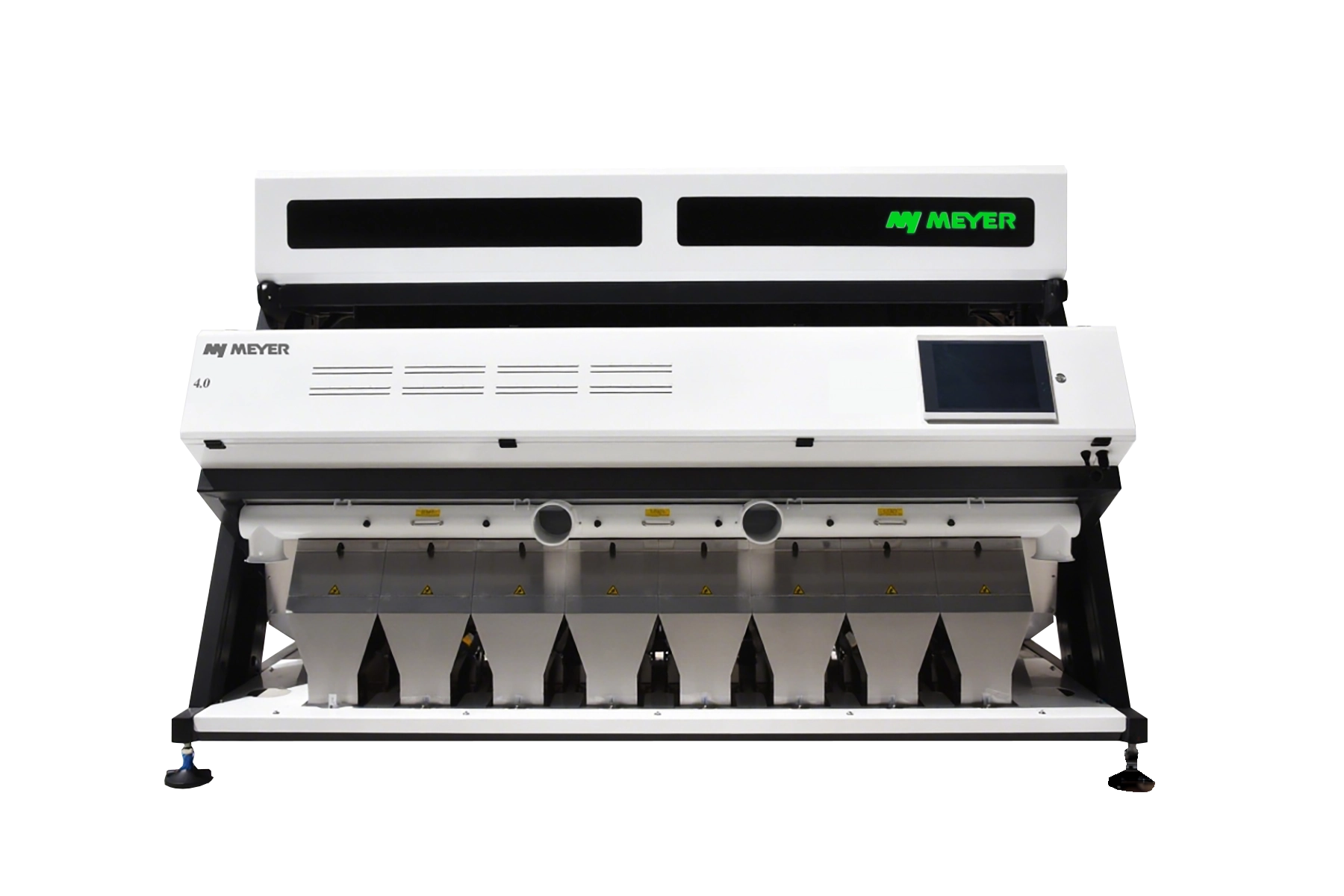Glass sorting
Enhancing Glass sorting efficiency with Meyer advanced sorting technology
Improve Glass sorting quality and increase throughput
Glass optical sorting process
Glass consumption worldwide is continuously increasing. More and more countries are implementing regulations that require the processing of glass materials to recover valuable resources, benefiting the environment and reducing waste. The glass sorting process involves technology that removes all types of impurities (stones, metals, plastics, etc.) from the glass fraction. Separation is crucial for high-quality recycling, as it eliminates contaminants and improves the purity of the recovered glass. Glass sorting can also include the division into different color fractions, making it possible to obtain clean and homogeneous materials that are more valuable in the recycling process. This division not only improves the appearance of the final products but also enhances their quality, as glass of a specific color can be reused in the production of new packaging or other glass products with specific color requirements.
See sorting samples
Best sorting machines for Glass sorting
Benefits of using Glass sorting machines
Increased purity and quality
Optical sorters can detect and remove discolored materials, foreign materials, and defects such as stones, sticks, or damaged grains. This results in higher purity and quality of the final Glass product, meeting consumer and market standards.
Better Efficiency and Throughput
Optical sorting technology allows for the processing of large volumes of Glass quickly and accurately, significantly improving throughput compared to manual sorting methods.
Reduced Labor Costs
Automated sorting reduces the need for manual labor, leading to cost savings and reduced human error in the sorting process.
Improved Product Value
Higher quality and purity of sorted Glass can lead to better market prices and customer satisfaction.
Versatility and Flexibility
Optical sorters can be used for different varieties of Glass and can be adjusted for different sorting needs, making them versatile tools in Glass processing.
Reduced Waste
Efficient sorting helps reduce waste by ensuring that only genuinely defective materials are removed, while maximizing the amount of good product.
Data Collection and Analysis
Modern optical sorting systems can collect valuable data about the waste stream, such as composition and contamination levels, aiding in process optimization and regulatory compliance.
Decreased Environmental Impact
By increasing the amount and quality of recycled materials, optical sorters contribute to reduced reliance on virgin resources, lower greenhouse gas emissions, and a smaller environmental footprint for waste management operations.
Enhanced Product Safety
By removing contaminated grains or foreign objects, optical sorters help prevent potential health hazards, contributing to safer products.
Our clients’ stories
Frequently Asked Questions
Why is the separation of glass into color fractions important?
The separation of glass into color fractions is important because it allows for the creation of clean, homogeneous materials that are more valuable in the recycling process. Glass of a specific color can be reused in the production of new packaging or other glass products with specific color requirements. This makes the recycling process more efficient and improves the quality of the recovered material, which reduces raw material waste and enhances the properties of the final products. Additionally, separating colored glass from clear glass eliminates the risk of contamination, which could lower the quality of the processed glass and make it less valuable in subsequent production stages.
Can glass sorting affect its market value?
Yes, glass sorting directly impacts its market value. Proper sorting of glass, with a division into different color fractions and the removal of impurities, results in a higher purity material. Cleaned glass is more desirable in the recycling market because it is easier to process and reuse in the production of new packaging, bottles, or other glass products. Therefore, appropriate sorting of glass leads to higher prices in the secondary raw materials market.
Can glass be sorted manually, or only using machines?
Yes, glass can be sorted manually as well. Manual cleaning of glass is time-consuming and may be used in smaller facilities. However, larger recycling companies, where the scale of operations is much larger, increasingly use optical sorting machines that provide faster and more efficient separation of different types of glass. Machine technologies allow for higher accuracy and efficiency in the glass recycling process.


